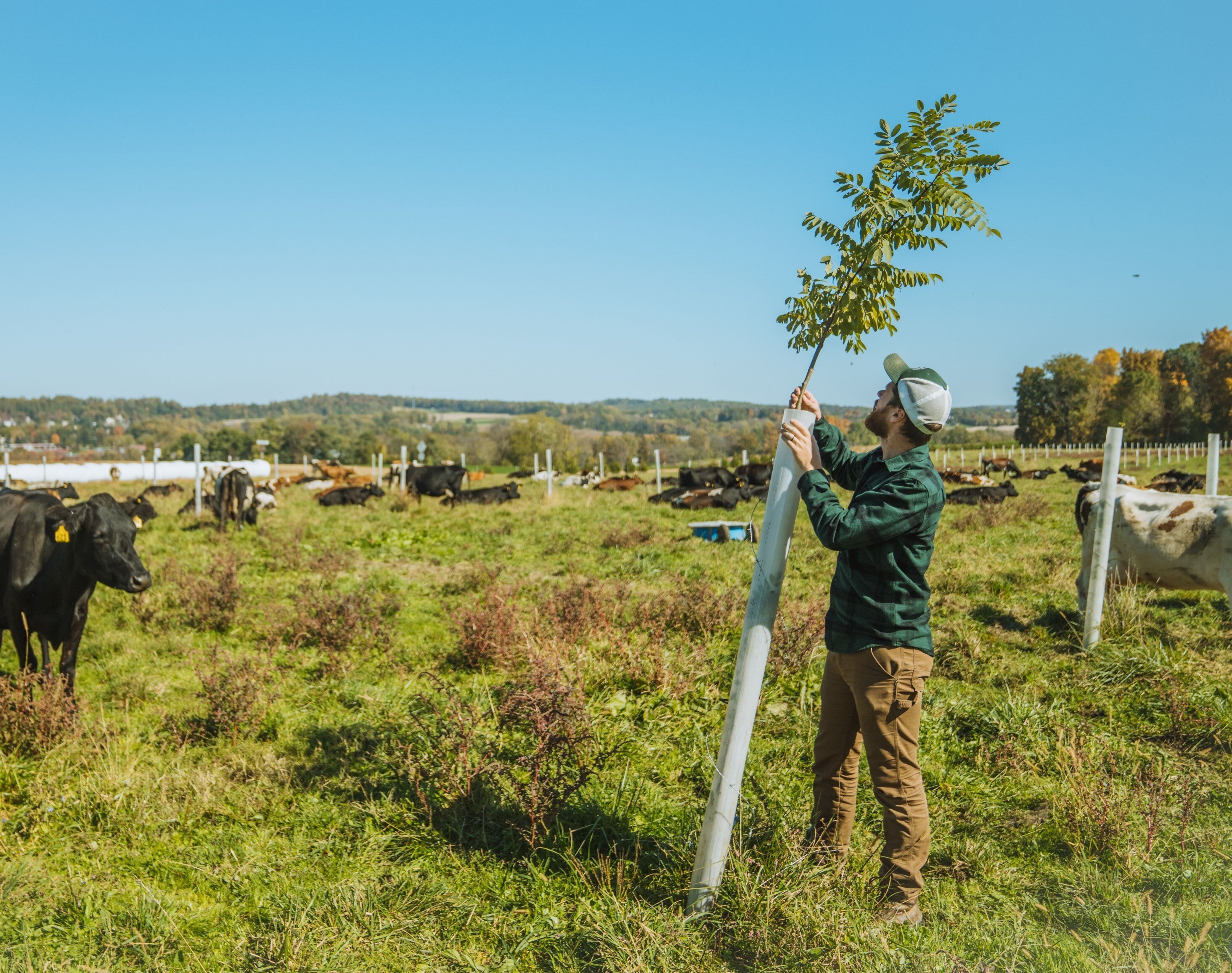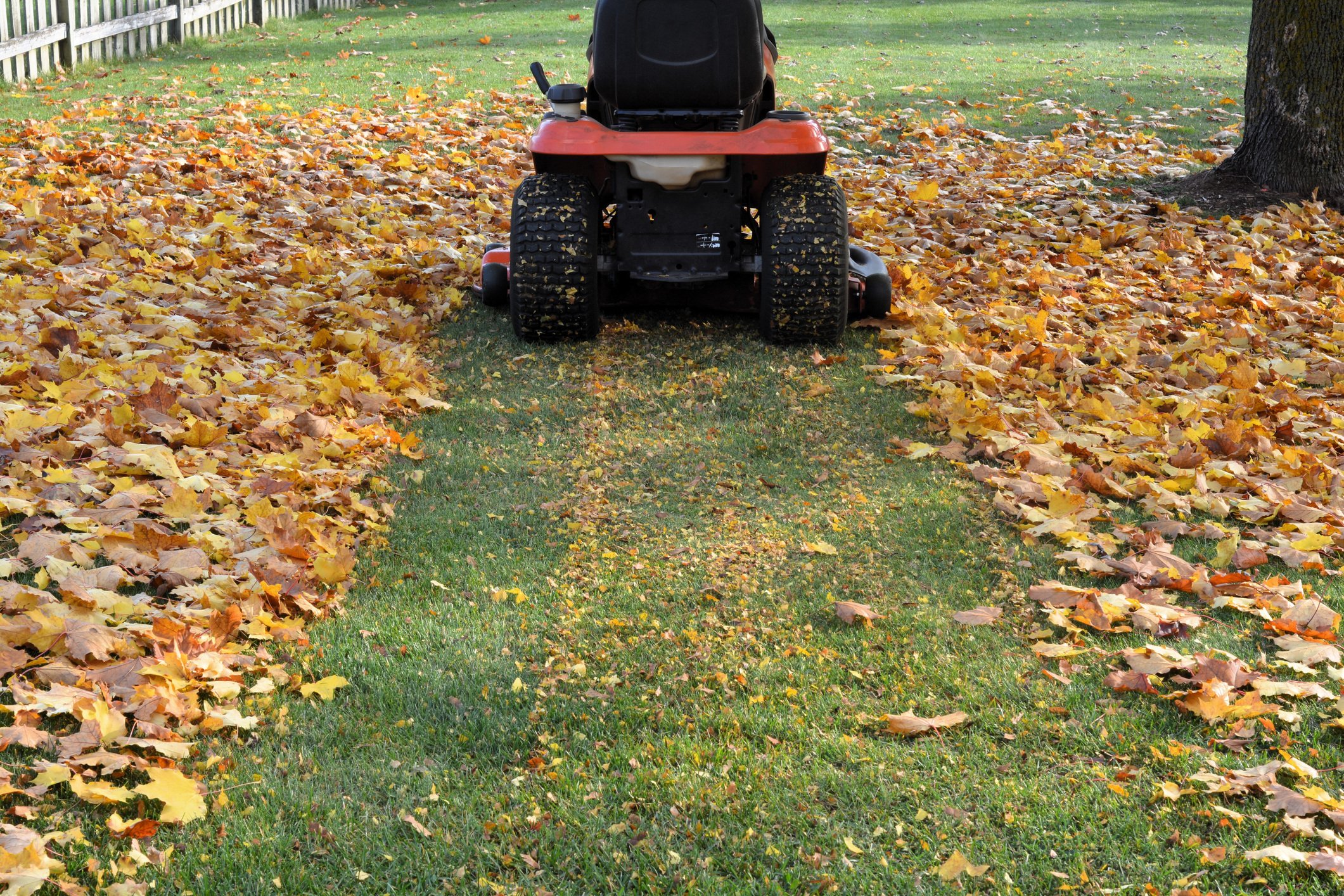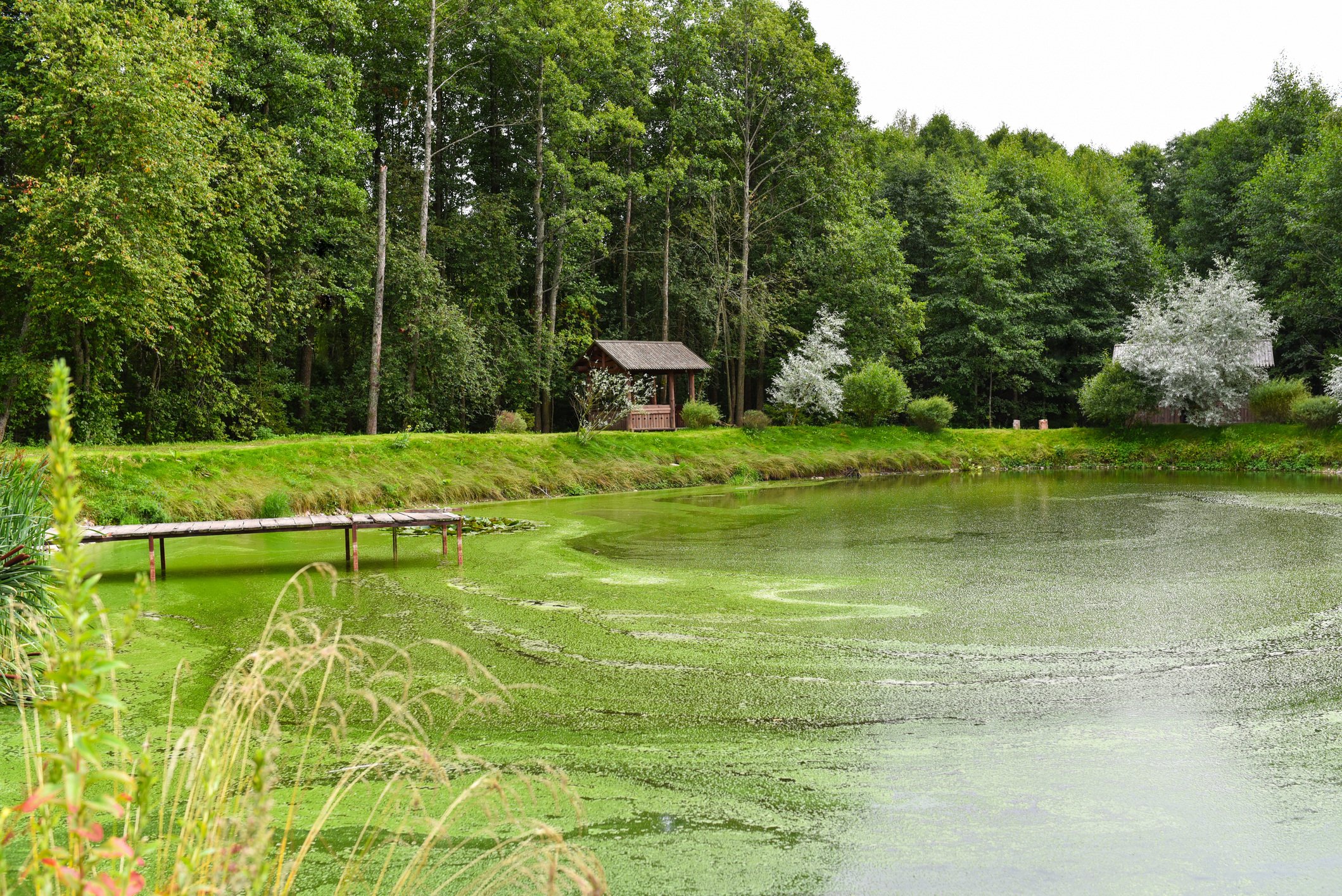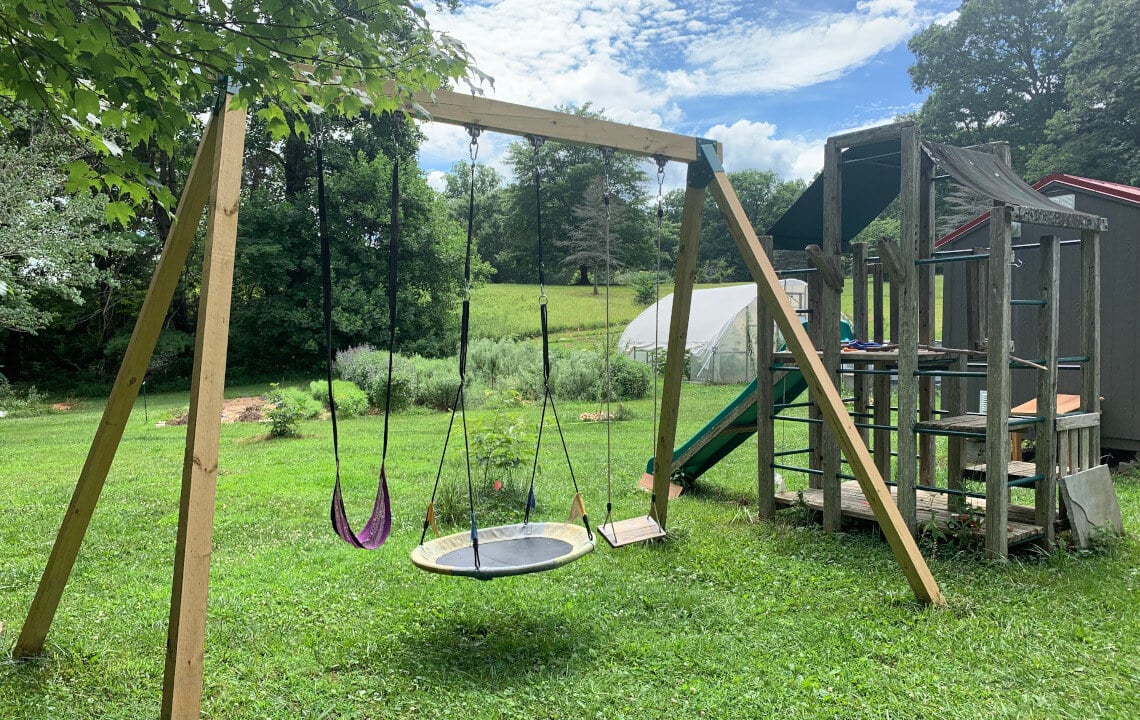Ample research across decades has shown lifestyle plays a primary role in heart health and heart disease risk. Here we explore 10 ways a rural lifestyle spent close to nature can benefit heart health and increase overall physical, mental and emotional well-being.
There are many reasons to consider going rural.
From more space to spread out and lower cost of living to more peace and privacy and less worry about crime.
However, many people are choosing to relocate to the country for the sake of their health.
We’ve covered how a rural lifestyle can boost immunity, reduce stress, improve cognitive function, benefit children’s health, improve your vision, help extend your life, improve happiness, give a sense of purpose and more.
In this article, we’re exploring how rural living, with its peace, quiet and close proximity to nature, can help reduce the risk of heart disease while promoting overall cardiovascular and metabolic health.
With heart disease still the #1 killer of Americans, it seems many aspects of a rural lifestyle may provide an impressive layer of protection when combined with a healthy lifestyle.
Here’s how.

1. Less Noise Pollution = A Healthier Heart
Experiencing more peace and quiet is one of the top reasons people desire a life in the country.
This is evident when urbanite areas visit the country and can hardly believe the silence and when country dwellers visit the city and can hardly believe the noise!
As it turns out, our deep desire for peace and quiet may be a form of self-preservation. Especially when it comes to protecting our hearts.
Studies have linked urban noise, such as traffic and airplanes to stress-related illnesses, including cardiovascular disease, disturbed sleep patterns and hearing loss.
This is why noise pollution is considered a serious public health issue.
There is generally much less risk of noise pollution when living on country acreage, as the setting and extra property help protect and ensure your peace.
Sure, you may hear flocks of birds migrating by, coyotes at night, roosters in the morning or the hum of your neighbor’s chainsaw, but it sure beats the constant grind of big-city noise.
2. More Opportunities to be Active
We all know regular exercise is essential to heart health.
Although evidence suggests city dwellers tend to be more fit, the truth is rural folks have more opportunities to be active by engaging in functional movement.
This is great news for people who don’t particularly enjoy exercising or hitting the gym but appreciate the benefits of moving their bodies in a purposeful way.

For example, hobby farming and homesteading provide ample opportunities to be active without ever setting foot in a gym.
Other ways to stay active in the country include:
- Chopping wood
- Gardening
- Walking around your property vs. ATVing
- Hiking in nearby nature spaces or on your own land
- Building trails on your land
- Mountain biking
- Yoga outdoors
- Strength training using a suspension trainer hung from a tree or everyday items like milk buckets, stumps or tools
- Horseback riding
- Chasing your children around the yard and/or installing a Ninja or obstacle course
Get more exercise tips in: 10 Ways Country Living Can Be Your Best Personal Trainer.
3. Earthing or Grounding Can Promote Various Aspects of Heart Health
Country living and living on acreage close to nature provides more opportunities for residents to go barefoot outdoors, garden and swim in natural bodies of water.
What does this have to do with heart health?
As discussed in, How Earthing Could Change Your Health, our brains, nervous systems and heartbeat all function through electrical impulses.
When these impulses are interrupted or unbalanced, the body’s communication system suffers, and disease or imbalances can take hold.
The earth is also electrical in nature and provides us with an unlimited supply of health-giving, negatively-charged electrons, the kind you feel after a nice rainstorm.
These negative-charged electrons, known as “vitamin G (grounding), have a calming effect on the whole body and help mitigate the onslaught of positive electrons we absorb from electronic devices, wearing shoes and general lack of contact with the earth.
They’re also natural antioxidants, which help protect our cells.

Research has shown making direct contact with the earth for 20-30 minutes a day by walking around barefoot, gardening, putting your feet in natural water or swimming can support heart health by:
- Reducing inflammation
- Lowering blood pressure
- Lowering heart rate
- Reducing blood viscosity
- Improving sleep (which affects the heart)
- Reducing stress
Learn more in: How Earthing Could Change Your Health.
4. Gardening May Have Specific Heart Health Benefits
Despite all the advances in medical technology, early diagnostics, our understanding of how lifestyle affects health and research, heart disease remains America’s #1 killer, with cancer close behind.
This can make a person feel powerless, especially if we have heart disease in our families or have been diagnosed despite our best efforts to live a healthy lifestyle.
But what if there were a way to reduce your risk of heart disease without changing your diet or devoting hours to exercise?
According to new research published in the British Medical Journal, gardening can help a lot.
The 12-year study examined over 4000 people over age 60 who did not exercise vigorously on a daily basis.
They found those who exercised modestly through activities like gardening, picking berries, walking, cutting the lawn or fixing up their cars had a 27 percent reduction in strokes and a 30 percent reduction in death by any cause.
In other words, you could increase your lifespan by 30 percent by starting a garden or taking time to tend to your property.
Studies have also shown time spent earthing or grounding, which occurs naturally when we garden, can reduce stress and inflammation, two leading contributors to heart disease.
Learn more about how gardening can promote health and longevity in: 5 Ways Gardening Fights Aging and Increases Your Lifespan.

5. Time Spent in Greenspace Reduces Stress & Anxiety, Which Promotes Heart Health
Stress is widely recognized as a causal and contributing factor to heart disease.
Yet, the constant noise, long commutes, traffic jams, worries about crime and general hustle and bustle can make it more difficult to manage stress in urban or suburban settings.
This doesn’t mean people in rural areas don’t experience stress.
However, a rural setting can help us avoid many common urban and suburban stressors. Especially if we spend time in nature, create a safe space for ourselves and spend less time in the city.
Various research studies suggest the same.
According to an article published by Yale University, time spent in nature can reduce:
- Blood pressure
- Heart rate
- Muscle tension
- Stress hormones
- Nervous system arousal
- Anxiety
- Feelings of isolation
- Risk of mental illness
- Symptoms of ADHD
While increasing:
- Feelings of calm
- A positive mood/outlook
- Immune system function
- Self-esteem
Spending time in nature also has a positive social impact, with research showing it can enhance community cohesion and lower crime rates.
Another study entitled: “City Living and urban upbringing affect neural social stress processing in Humans” found rural living may be particularly beneficial for children.
The study showed that children raised in cities are more likely to have a permanently heightened sensitivity to stress than those who move to cities later in life.
All this adds up to less stress and anxiety, which naturally supports a healthy heart.
Learn more about all the science-backed ways a rural lifestyle can benefit children's health in our eGuide: How Country Living Makes Children Strong and Resilient.
6. Better Air Quality = A Healthier Cardiovascular System
Rural places in North America tend to have lower rates of air pollution than urban areas.
This is part of the reason city dwellers and those living near traffic have higher rates of asthma and respiratory illnesses.
Although respiratory health may seem unrelated to heart health, the two are very much connected.

As you may know, the heart relies on a steady supply of oxygen from the lungs to function optimally. Likewise, the lungs rely on a steady supply of oxygenated blood to function and breathe.
Without adequate oxygen, the heart will eventually fail, causing distress and, ultimately, failure of the lungs.
If the lungs are ailing or failing due to a lack of oxygen from something like chronic obstructive pulmonary disease (COPD), it can cause a rise in blood pressure, known as pulmonary hypertension, which puts stress on the right side of the heart and can cause it to fail.
As you can see, air quality can significantly impact heart health through its effects on the lungs.
It says a lot about the benefits of fresh, clean country air!
7. Nature Exposure Lowers Blood Pressure
Humans have an intuitive sense that being in the country and in nature helps us relax.
This feeling can be so tangible it’s common to hear people say, “When I arrive in the country/the woods/the lake, etc. I can feel my blood pressure dropping.”
As previously mentioned, research has confirmed that time spent in quiet natural spaces can help lower blood pressure. Practice earthing or grounding, gardening, tending animals, hiking or forest bathing or doing farm chores can also help.
8. Spending Time Around Animals May Lower Your Risk of Heart Disease
Having pets around provides many benefits, such as creating a sense of purpose, joy and companionship for people of all ages.
These benefits can be magnified when caring for farm animals like chickens, horses, pigs, goats or cows, who require special care and give back in spades.

Research has shown regular interaction with pets and farm animals benefits your heart health by:
- Improving physical fitness
- Lowering blood pressure and cholesterol
- Reducing stress
- Reducing the risk of obesity
- Improving overall quality of life
Animals also protect against loneliness and depression, significant risk factors of heart disease, while giving us a sense of purpose and, in some cases, security.
There is also ample research on how riding, caring for and interacting with horses or equine therapy, can help ease specific mental health disorders, like PTSD, trauma, anxiety, regulation of emotions, compulsiveness, social skills, trust and more.
Equine therapy can also be especially therapeutic for autistic children and teens.
Learn more in: How Keeping Farm Animals Keeps You Happier and Healthier.
9. More Fresh Air Promotes Better Sleep, Which Benefits Your Heart
Most people relate deficiencies in diet, stress management and exercise to heart disease.
However, did you know a lack of sleep is also a leading risk factor?

Research has shown a lack of sleep can directly and indirectly harm the heart and cardiovascular system via its effects on stress response, blood sugar, metabolism, mood and other factors.
Fortunately, there’s good news for rural people, provided they take advantage of the great outdoors.
Research has shown exposure to fresh air and sunlight, particularly morning sunlight, has a positive impact on the circadian rhythm, also known as your sleep cycle.
Wise mothers and grandmothers have known this for centuries, hence why they were always insistent that children spend plenty of time outdoors.
Not only does it promote physical activity, but it wears them out!
Adults would be wise to apply this wisdom (and science) to their own lives by taking advantage of beautiful rural places for morning walks, hikes, farm work and other outdoor pursuits.
10. Country Living & Farm Life Support the Microbiome and Gut-Heart Axis
As outlined in: Could Country Living Be Your Best Probiotic? various aspects of country life, such as tending farm animals, gardening and spending time in nature, have been shown to positively impact gut microbiome diversity.
This has a direct impact on many aspects of health, including cardiovascular function, via the gut-heart connection or gut-heart axis.
Here’s a quick explainer.
Studies have shown the bacterial composition of our gut microbiome can impact various aspects of cardiovascular health, including:
- Artery health
- Blood pressure
- Cholesterol
- Plaquing
- And overall cardiovascular health and function
The connection involves how specific gut microbes, also known as probiotics, interact with various aspects of the cardiovascular and metabolic systems, as well as the central and enteric nervous systems (the enteric nervous system is the nervous system housed in your gut that forms the basis of the gut-brain connection).
Doctors have recognized a connection between the gut and the heart for years, which is why a high-fiber diet has always been recommended for heart health.
However, the official discovery and nuances of the gut-heart axis are a relatively new phenomenon.
For more information on how country living can benefit your microbiome (and the microbiome in general), see:
Interested in Learning More About the Health Benefits of Rural Life?
Although living in the country does not automatically lead to better health, this research suggests that many aspects of country life can help reduce one's risk of heart disease.
The most important thing is to take advantage of them rather than watching the countryside go by from your rocking chair (although that has its merits, too!).
Spend time in nature, start a garden, try earthing/grounding, connect with your local community, get plenty of fresh air, be aware of stress, consider getting some farm animals (chickens or guinea fowl are a great place to start!) and be intentional about creating a safe and quiet home where you can truly rest.
Discover many more health benefits of rural living in the Health section of our blog.

























